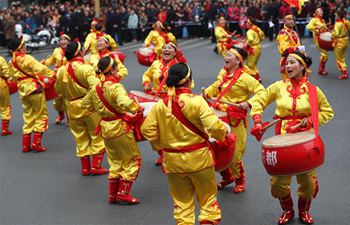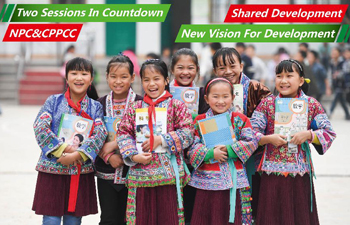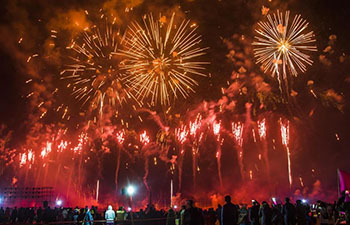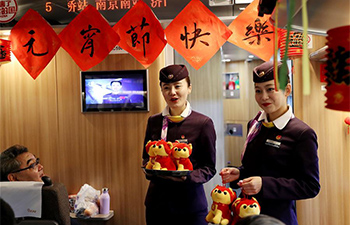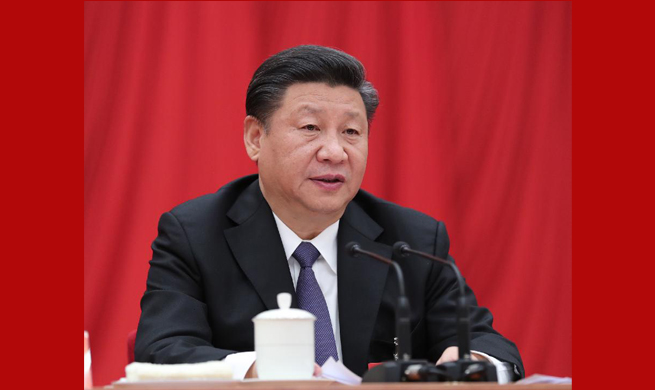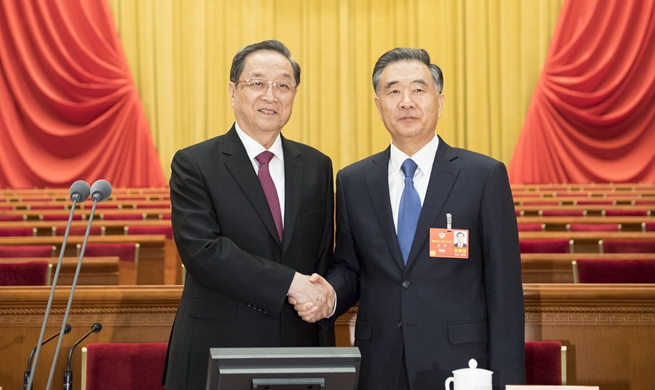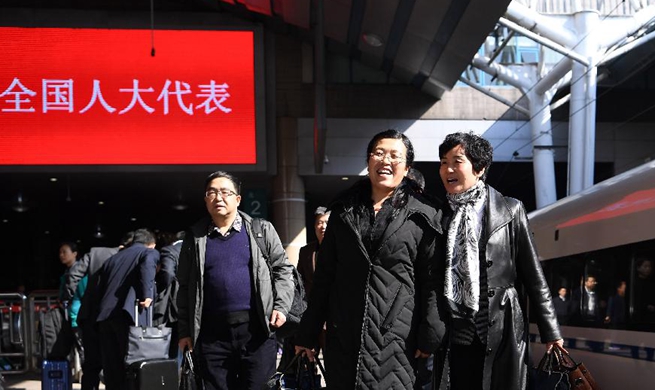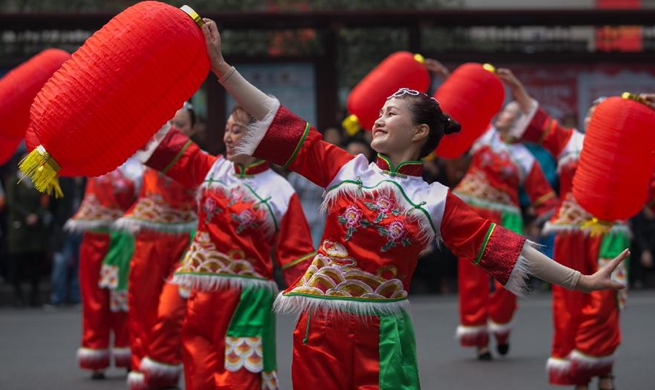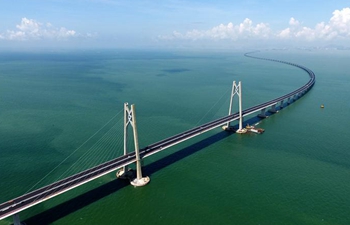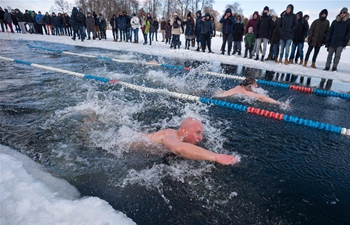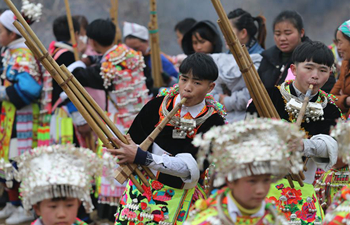CARACAS, March 2 (Xinhua) -- Venezuela's decision to push back its presidential elections serves to further weaken the opposition bloc, a political analyst said Friday.
Miguel Contreras, a professor of sociology at the Central University of Venezuela (UCV), spoke with Xinhua a day after the government and opposition parties signed an agreement to postpone the elections to May 20.
The move has split the opposition into two camps: those in favor of competing for the vote of the Venezuelan people and those who favor boycotting any initiative involving the government.
Venezuelan President Nicolas Maduro will be running for re-election as candidate of the ruling United Socialist Party of Venezuela (PSUV), and Henri Falcon, former Governor of Lara State, has registered to run against him as candidate of the Progressive Advance (AP) and Movement Towards Socialism (MAS) parties.
Falcon's campaign chief Luis Romero and Maduro's Communications and Information Minister Jorge Rodriguez signed the agreement, in which the two sides pledged to respect the outcome of the elections.
Venezuela's coalition of right-wing parties known as the Democratic Unity Roundtable (MUD) is so far refusing to take part in the election process.
The MUD denounced Falcon for registering as a candidate, saying his participation only serves to legitimize the election process, and ejected him from the opposition alliance.
According to Contreras, by agreeing to push back the poll and give the opposition more time to organize, the government may be following a two-pronged strategy to both bolster its "legitimacy" and "fragment the opposition as much as it can."
The government can "gain legitimacy by postponing the elections on the basis that it is creating the conditions" that the opposition was demanding, said Contreras.
Secondly, the PSUV has been looking for a rival like Falcon, said Contreras.
A former "Chavista," or sympathizer, who then migrated over to the opposition, Falcon is a rival with "a certain familial similarity," making it easier for the PSUV "to dialogue" with him, which "is an advantage" for Maduro, said Contreras.
"The radical factions of the opposition obviously don't identify with Henri Falcon's platform," and would not unite behind him, Contreras said.
Falcon's disregard for the MUD leadership's call to shun the elections have made "the internal differences more acute" within the MUD, he said.
Falcon moved to the forefront of the opposition movement after MUD leaders Henrique Capriles, who lost to Maduro in the past elections, and Leopoldo Lopez, currently under house arrest, became ineligible to run on technical grounds.
Their political parties, Primero Justicia (First Justice) and Voluntad Popular (Popular Will), respectively, were disqualified by the electoral body after failing to renew their registration.
Contreras said Maduro is likely to win re-election, but he also believed the opposition and its foreign backers will maintain their economic warfare against the ruling PSUV.





